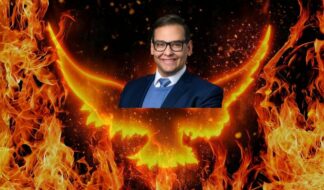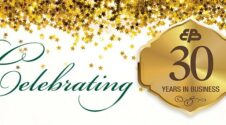In the mid-50s there weren't any nationwide advocacy groups. No newspapers like Between The Lines. No gay-friendly churches. No out homosexual celebrities. Zero.
Gays and lesbians – considered a psychologically aberrant, innately suspect, very small minority – lived in the closet at home, at college, at work, and especially in public. In fact, the closet as a concept didn't exist.
Bisexuals, it was said among us gays and lesbians, lacked the guts to admit who they honestly were. Crossdressing was forbidden except on Halloween; and in 1956, Christine Jorgensen made big news for – whisper, whisper – "having the, you know, sex-change operation."
Being "out" was being secretive. One shared a same-sex status or attraction only with trusted queer friends. Nicknames were a given. I was known as Big Al. (Big, for tall, by the way.) Survival strategy was passing for straight. Play the game. If need be date. If really need be, get married. If you can, fake it. I couldn't.
Detroit, as the Arsenal of Democracy, was "the" center for war work, and attracted thousands of World War II workers, soldiers, sailors, WAVEs, and WACs. Gay bars thrived and continued on through succeeding decades.
There were several crowded clubs in the 1950s, and a couple of notorious restaurants in the city's downtown area where teenagers hung out and learned from gay peers how to cope with a hostile world. It was a viable gay community.
Gay life back then was exciting, varied, nurturing, sophisticated, trashy, unsegregated, segregated, colorful, drab, fulfilling, energetic, dangerous, sheltering, sustaining, fun, wild, crazy, frustrating, boring, exhausting, and damned less expensive. Beer 50 cents a bottle. Martini, $1.25. Jail bail, $25. Looking back . . .
. . . I was 19 the summer I graduated from Cass Tech. Free from studies, living at home, taking time off before job hunting, I was keen to explore the gay scene.
I heard from friends about the infamous Hub Grill, located at Farmer and Bates streets, inconveniently within a short trek (and a lock up) to the 1st Police Precinct Headquarters and Old City Hall, in walking distance of the Renaissance Center.
The Hub Grill was a greasy spoon, knife and fork, with large windows, angled on the two street corners. To enter was to be gawked at. Queer! Faggots! Fruits! To stool sit in everybody's sight was thumb-your-nose brazen. "Flamers" – obvious queens – never seemed to mind. They thrived on the attention.
Two sisters, Fran and Flo, and a scruffy cook, Uncle Jimmy, held bicarbonate-of-soda court. Fran rarely smiled, and smoked nonstop. Flo, her hair worn in Rosie the Riveter upsweep, was all winks and confidential tease: "Miss Thing, don't you look all Hollywood. You gonna snag husband number five tonight, or is it six?"
I hadn't sat down more than a few minutes, when a talkative number at my elbow – "she" called "herself" Marshmallow – decades later transitioning to leather butch – asked, "Are you a Browning King or Queen?" Not knowing anybody's top from my nobody's bottom, and wanting to be newcomer polite, I asked, "Is there such a thing as a Browning Prince?" "How about Princess?" she clucked.
I soon got to know the regulars by face and nickname. There were a spate of Miss this, Miss that. Names like Little Bobby, Estralita, Taboo, Little Laura Findlove. Butch Bob. Lady Chrysler. The Empress. I made friends and, importantly, I realized as a gay teenager I was not alone. My world was much bigger than I thought.
It was custom summer nights to stroll onto the streets to see who paraded in and out of the bars: The 1011, Silver Dollar, Barrel Bar, the dykes galore, Palais, LaRosa's. (I had heard about LaRosa's when I was 15. "It's a queer bar. Fairies go there," confided a buddy one Halloween night when we spotted some men in skag drag getting into a Checker Cab. If there was one thing I hated as a kid it was being called a fairy.)
I weighed 175 lb., buff in my penny loafers, 6' 2", and had a 30-inch Levi's waist. I was told I looked like actor Carleton Carpenter, later gay mystery writer, who starred opposite Debbie Reynolds in a no-brainer B- movie then current, singing "Abba Dabba Honeymoon."
Standing on the corner during those carefree, adventuresome nights, we underage teenagers flirted and flaunted, hoping to meet someone special. Preferably someone older and reasonably butch, when the bars closed. Unfortunately, most nights I had to be home by eleven sharp.
My folks never asked where I had been. Or, fortunately, who I was not dating.










